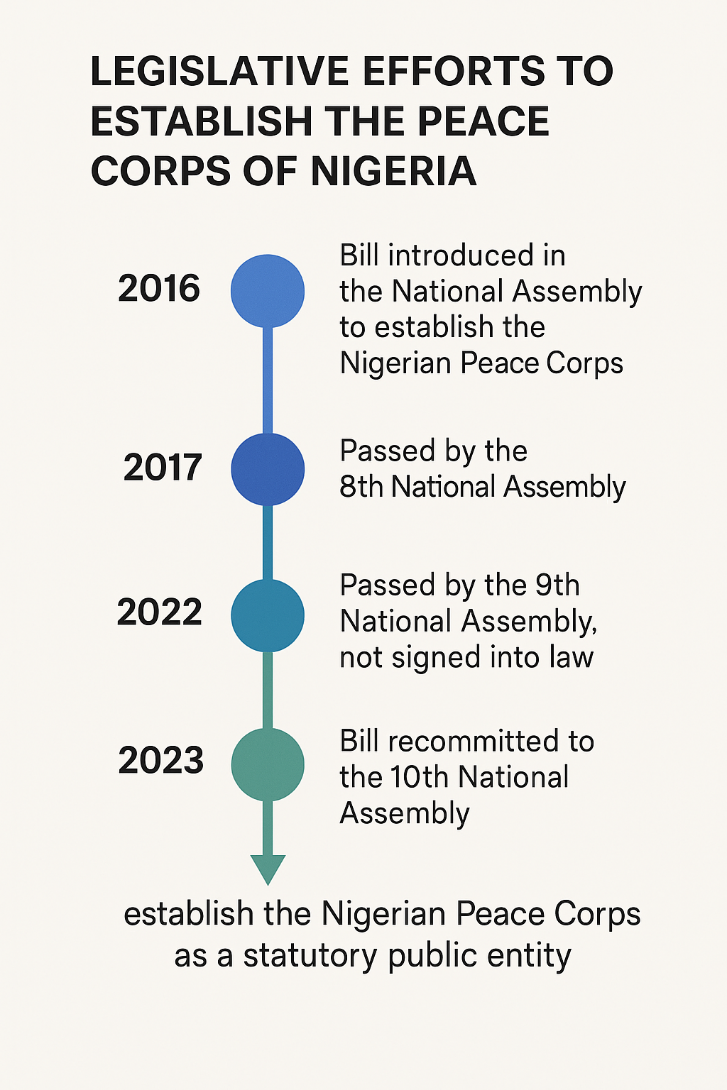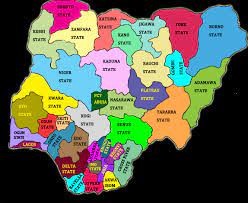Since its establishment over two decades ago, the Peace Corps of Nigeria (PCN) has demonstrated unwavering commitment to youth development, nation-building, and the promotion of peace across the country. In recognition of the Corps’ impactful programs—both nationally and internationally—and its contribution to the socio-economic empowerment of Nigerian youth, the National Assembly initiated legislative processes to formalize the organization as a statutory public entity.
A Bill for an Act to Establish the Nigerian Peace Corps was introduced and received overwhelming support during public hearings. The Bill successfully passed through both chambers of the 8th and 9th National Assemblies, reflecting broad national consensus on the importance of institutionalizing the Corps.
However, the Bill was among the 64 high-profile legislative documents that were not assented to by His Excellency, Muhammadu Buhari, GCFR, former President of the Federal Republic of Nigeria, before the end of his administration. Upon the assumption of office by President Bola Ahmed Tinubu, GCFR, the Bill was returned to the 10th National Assembly for re-committal and continuation of the legislative process.
The Bill is currently undergoing re-committal procedures, and once passed again by both chambers, it will be transmitted to the President and Commander-in-Chief of the Armed Forces for final assent.
The successful enactment of this Bill will provide the Peace Corps of Nigeria with full legal status as a government-recognized agency, thereby expanding its operational capacity and enhancing its contributions to national development, peace-building, and youth empowerment. 



